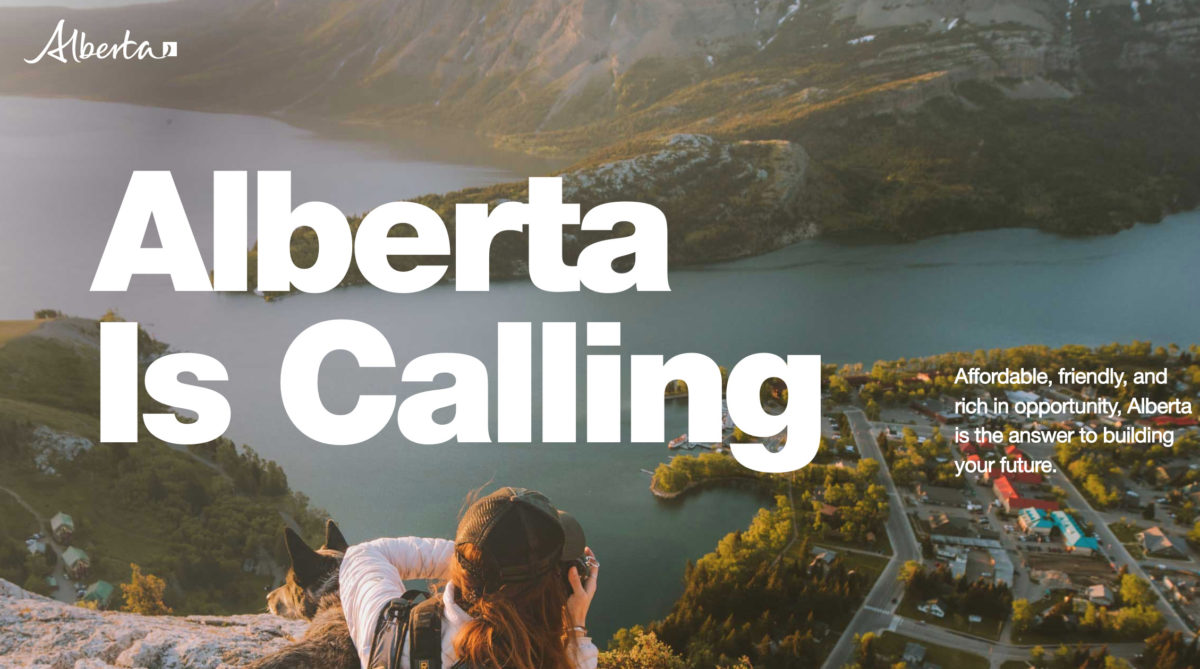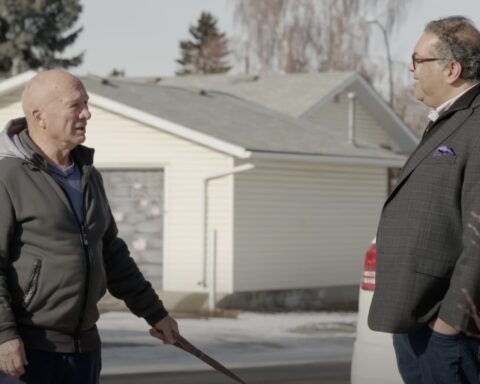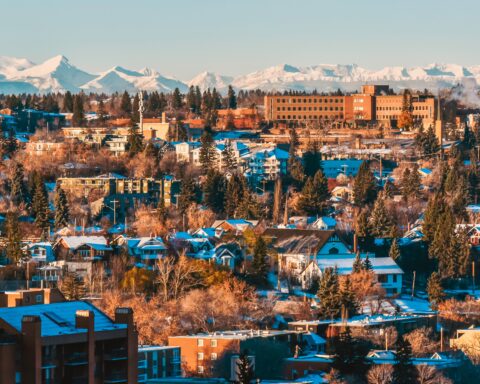The clarion call of Alberta’s latest marketing campaign that promised higher pay cheques and lower rent cheques appears to be working, with nearly 200,000 people – many of them new Canadians – moving to the province in the last year.

But is there really an “Alberta advantage” for newcomers, or are the costs – like many places in Canada – prohibitive?
Chukeyev arrived with his wife and daughter from the capital of Kazakhstan, Astana, just a year ago. They chose Calgary as their destination due to its beautiful natural surroundings, favourable tax conditions and higher salaries. Based on Chukeyev’s research, he knew that he would be paid at least $15 an hour, the province’s minimum wage, and could earn more.
Another defining factor was Alberta’s lenient stance on language proficiency. Chukeyev does not speak either English or French. Before coming to Canada, he and his wife also considered Montreal as a potential destination. However, due to the strict French-language policy for immigrants to Quebec, they rejected the idea.
Affordability and favourable tax conditions also prompted Danna Ibrasheva, also a native of Kazakhstan, and her family to choose Alberta over other Canadian provinces in January 2020. Ibrasheva, her husband and son initially arrived in Calgary, lured by the city’s proximity to mountains. However, Ibrasheva and her husband struggled with job search and eventually relocated to Edmonton where they settled.
“I recommend my fellow newcomers to come to Alberta due to its affordability. Calgary has the most sunny days per year, with excellent air quality. Whereas, Edmonton has more jobs compared to Calgary,” said Ibrasheva.
The impact of this influx of newcomers like Chukeyev and Ibrasheva is evident in the statistics.
Alberta’s population increased by 4.3 per cent in the past year, and reached 4,756,408. Meanwhile, Canada’s total population increased by 3.2 per cent during the same period, totaling 40.5 million people by the end of 2023. The campaign was highly successful, with Alberta’s population growing at a faster rate than the country’s total population.
And Alberta’s story has been particularly attractive to newcomers. According to the Alberta government statistics, in the third quarter of 2023 alone, there were 39,212 net migrants to Alberta from international origins, a 38.3-per-cent increase from the year before, while in the same period 17,094 net migrants came from other Canadian provinces, a drop of three per cent from the year before.
In line with this population growth, data from the government of Alberta on the province’s Occupational Outlook between 2021-2030 indicates that the number of anticipated job openings is expected to surpass the number of new job seekers, resulting in a shortage of about 33,100 workers by 2025.
Primarily, these shortages are predicted to be driven by the need to replace workers who are due to retire. In 2025, 31 per cent or 32,000 of total job openings will come from demand created by increased economic expansion, while 69 per cent or 71,900 will come from the need for replacement workers.

Alberta’s Occupational Outlook for 2021-2030 shows that labour shortages are forecasted in:
- construction trades and engineering occupations related to construction;
- computer programmers and information systems analysts;
- health occupations across education levels, clustered around nursing; and
- educators in primary school and college.
This shortage in key sectors aligns with the experiences of newcomers like Chukeyev, who found his first job in Calgary just a month after landing in Canada.
His wife accompanied him to his first job interview because she spoke English fluently and could translate for him. The employer did not offer the job right away, stating that he expected at least basic language skills from Chukeyev. However, he called Chukeyev three days later with a job offer and Chukeyev became a handyman at a laboratory on the outskirts of Calgary.
“I indicated on the job questionnaire that I can speak Russian. The company had hired several Ukrainians before me, and one Ukrainian worker spoke both English and Russian fluently. The employer told me that this Ukrainian worker would translate for me,” said Chukeyev.
In contrast, Ibrasheva and her husband’s experience with job searching was filled with difficulties. They were compelled to make a move from Calgary to Edmonton to secure well-paying jobs.
“My husband moved to Edmonton first, so we had to live separately for 10 months. I had to juggle between two jobs and childcare amidst the pandemic,” Ibrasheva said.
However, landing work does not guarantee success. While Alberta officially pledges affordability, improved lifestyles and job opportunities, new arrivals like Chukeyev can struggle to afford to live in the province.
In December 2023, Chukeyev and his wife subsequently made the decision to leave Alberta and Canada entirely.
“As a family of three, we spent $5,000 a month, with $1,500 for rent, and other expenses exceeding $3,000. All of the money we earned went toward our needs.”
In late January 2024, Chukeyev and his family will return to Kazakhstan.
Ibrasheva and her family, on the other hand, have learned to make the best of what Alberta has to offer. Today, Ibrasheva is a fan of the Edmonton Oilers, a professional ice hockey team based in Edmonton.
And in the autumn of 2023, Ibrasheva and her family applied for Canadian citizenship.
According to the inflation data from Statistics Canada, Alberta’s cost of living across all items, including shelter, food, energy, and others, increased by 3.5 per cent. Meanwhile, shelter costs also experience a significant rise, climbing by 10.2 per cent.
Alberta’s two main cities, Edmonton and Calgary, witnessed a significant increase in housing costs over the past year. According to the latest Rentals.ca report, the cost of a one-bedroom apartment in Edmonton rose by 12.3 per cent from December 2022 to December 2023.
The average rental price for a one-bedroom apartment in Edmonton totaled to $1,297 in December 2023. Similarly, in Calgary, there was a 10.6-per-cent rise in rental prices for one-bedroom units during the same period. The average rental price for a one-bedroom apartment in Calgary amounted to $1,736 in December 2023.
To be sure, Ibrasheva is not immune to Alberta’s rising prices. When it comes to the cost of living in the province, Ibrasheva notes that she is observing price spikes for many essentials, particularly groceries. Nevertheless, she says she is confident in the provincial government’s pledge to limit tax increases and improve the lives of Albertans.
Makhabbat Aitekenova, a journalist from Kazakhstan, is a graduate of Nazarbayev University, the country's top institution known for its English-language instruction. With over five years of experience in broadcast journalism and digital media, Makhabbat is skilled in writing for television, radio and newspapers. She recently arrived in Canada in September 2023, with plans to further her career in journalism, focusing on local and immigrant stories. In her spare time, Makhabbat enjoys reading books about Canada, with her latest literary delight being 'The Colony of Unrequited Dreams' by Wayne Johnston. You are welcome to follow her on LinkedIn and X.





